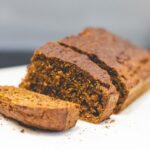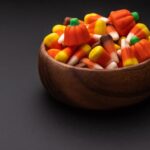No, jello is not a safe food for dogs. Some brands of jello may contain xylitol which is a toxic substance for dogs. Hence, keeping your dog away from this sweet delicacy is best. If your dog has consumed a small amount of jello that doesn’t contain xylitol, don’t worry. However, excessive amounts can be harmful.

Caution: This food is generally considered risky by the veterinary community. Dogs should not eat this food and should be monitored for adverse effects.
| Food Safety | Caution |
|---|---|
| Nutritional Issue | Artificial sweeteners like xylitol, high sugar content |
| Potential Risks | Dental issues, obesity, diabetes, upset stomach, xylitol poisoning |
| Symptoms | Diarrhea, vomiting, and other digestive issues |
How Much Jello Is Bad for Dogs
A small amount of jello should not cause any harm. So, let’s say your dog had a teaspoon of jello one time; that is quite alright. However, if they continue to eat even a small amount, like a teaspoon, daily, they will likely develop many health problems.
If your pet has eaten too much jello, look for signs of a distressed tummy.
That said, the answer to ‘can dogs eat jello?’ is actually in its ingredients. If the jello contains xylitol, even a small amount can harm your innocent little pet. That sounds horrible, doesn’t it?
TIP: Your curious doggy will likely investigate what you are eating. To ensure your precious furry friend doesn’t consume xylitol, check the ingredients before buying and prevent accidents.
What Makes Jello Unsafe?
Jello has a very high content of sugar. The delicious fruity dessert is great for humans, but regular consumption can be problematic for dogs.
Sharing a small amount of jello every time you eat some might seem harmless, but it can cause multiple health issues in the long term. Eating it regularly can cause cavities in your canine’s teeth as well as weight gain leading to obesity and diabetes.
Your dog may wag their tail and enjoy the food, but as pet parents, you are responsible for making the right decision since they cannot.
Moreover, if the jello contains xylitol, it can be fatal due to poisoning.
Common Ingredients in Jello
Here are some common ingredients found in jello:
- Gelatin: Plain gelatin is safe for your dogs
- Artificial Flavors: Artificial flavors can adversely affect your pet dog’s health.
- Sugar: High sugar content is bad for your dog. It can cause many health problems.
- Food Coloring: Only FDA-approved food colors are safe for dog consumption.
Frequently Asked Questions
-
Yes, dogs can eat gelatin. In fact, some pet owners make pet-friendly jello using plain gelatin for their dogs. Remember only to feed your dog gelatin in moderation.
-
No, dogs cannot eat sugar-free jello. Artificial sweeteners are considered harmful to dogs and can cause them great distress. Certain artificial sweeteners like xylitol are fatal for dogs, even in small quantities.
-
If your dog has low blood sugar, weakness, seizures, or collapses after consuming jello, it might have had xylitol. Immediately take them to the vet to ensure their safety.







